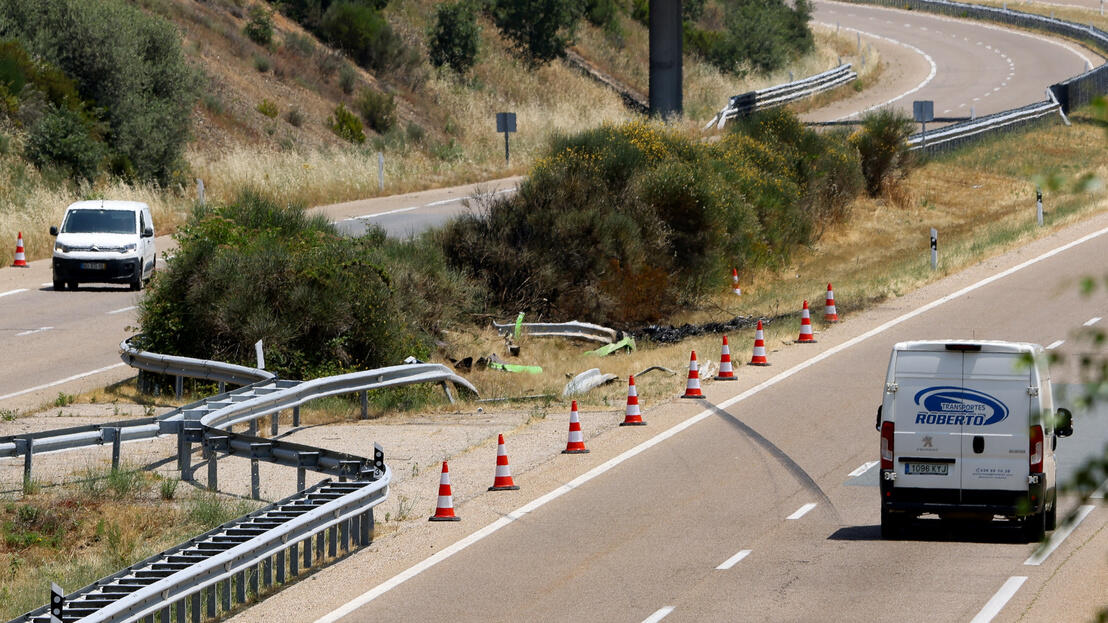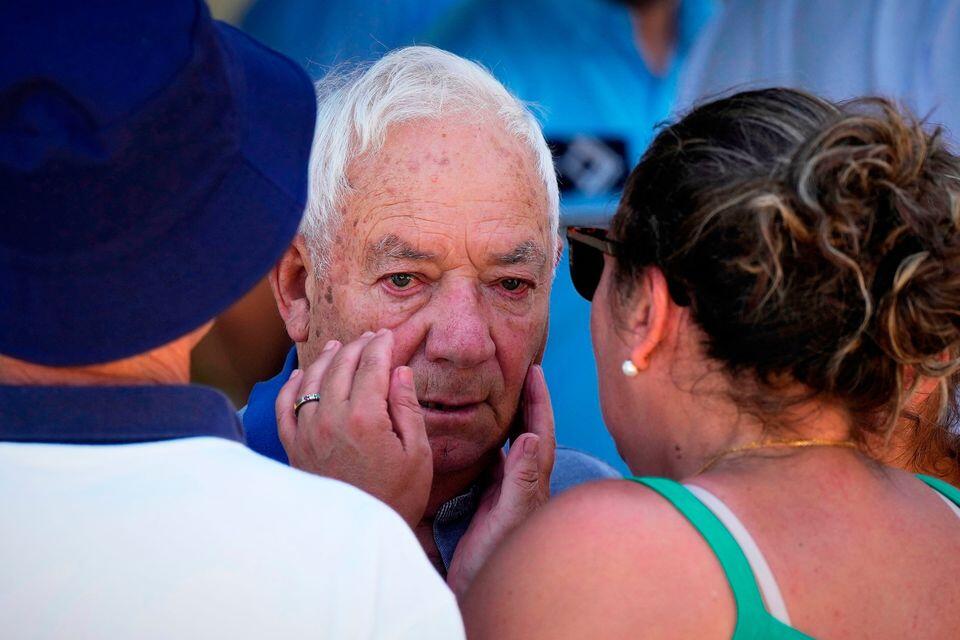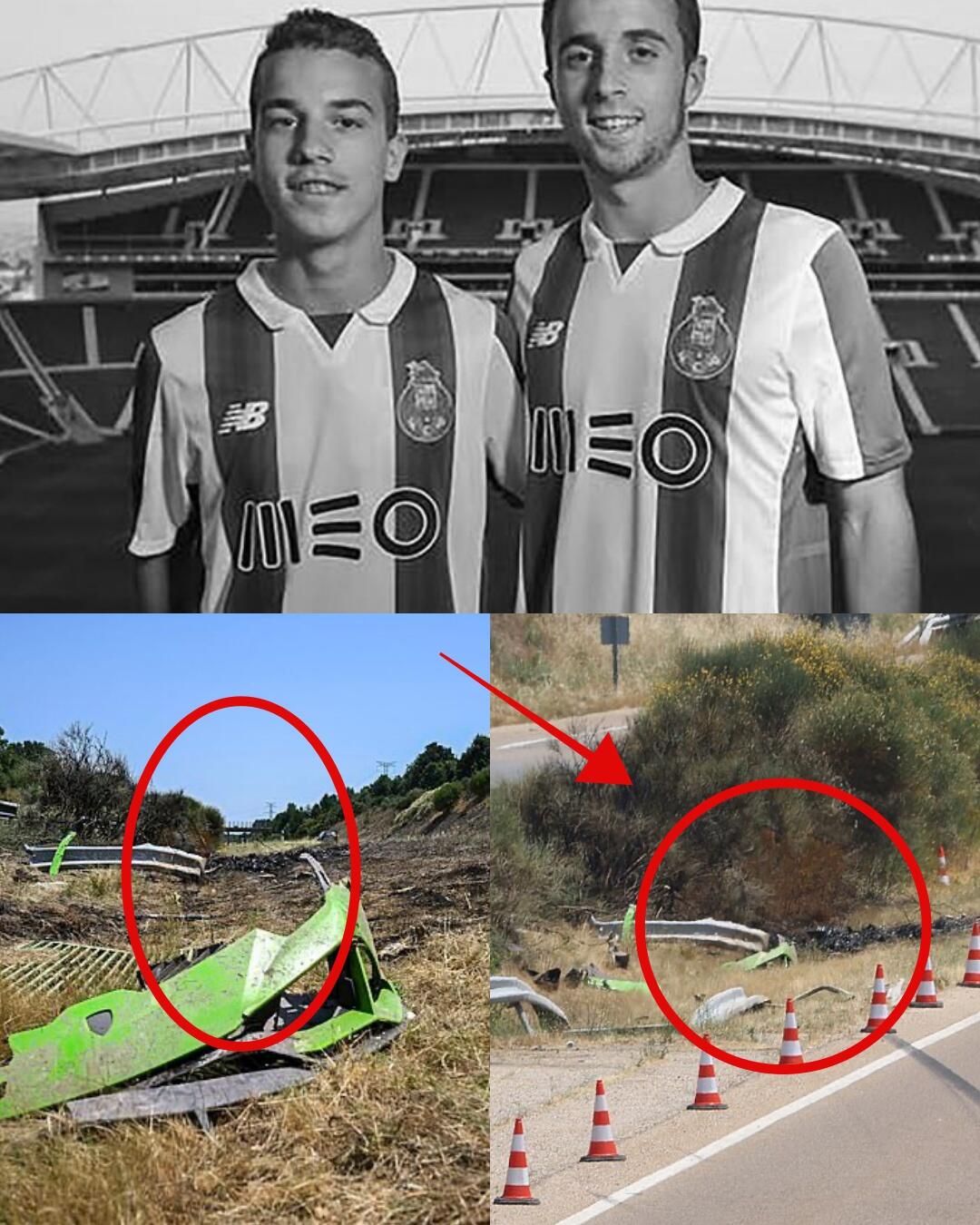Diogo Jota’s Father Held His Son’s Childhood Medal for 11 Minutes at the Cemetery — What He Whispered Is Now a Mystery
On a somber Saturday morning in Gondomar, Portugal, the small town near Porto was enveloped in grief as family, friends, and football luminaries gathered to bid farewell to Diogo Jota, the beloved Liverpool and Portugal star, and his younger brother André Silva. The brothers, aged 28 and 25, tragically lost their lives in a car crash in northwestern Spain on July 3, 2025, just 11 days after Jota’s wedding to his childhood sweetheart, Rute Cardoso. The funeral at the Igreja Matriz de Gondomar was a heart-wrenching affair, attended by Liverpool players like Virgil van Dijk and Andy Robertson, Portugal’s national team coach Roberto Martínez, and countless fans. Yet, amidst the outpouring of tributes, one poignant moment stood out: Jota’s father, Joaquim Silva, clutching his son Diogo’s childhood medal for 11 minutes at the cemetery, whispering words that remain a mystery.
A Community in Mourning

Gondomar, a quiet city known as Portugal’s goldsmith capital, is no stranger to crafting beauty from raw materials. Diogo Jota, born Diogo José Teixeira da Silva, was one such gem, rising from the local SC Gondomar academy to the global stage of the Premier League. His brother André, a professional footballer for FC Penafiel, shared a similar path rooted in the region’s football culture. The brothers’ deaths in a fiery Lamborghini crash—possibly due to a tyre blowout while overtaking on the A-52 near Zamora—left the community reeling. The accident’s suddenness, coupled with Jota’s recent marriage and his role as a father to three young children, Dinis, Mafalda, and Duarte, amplified the tragedy.
The funeral service, held on July 5, 2025, drew hundreds to the streets outside the Igreja Matriz. Liverpool captain Virgil van Dijk and teammate Andy Robertson carried floral tributes shaped like football shirts, bearing Jota’s number 20 and André’s number 30. Portugal internationals like Rúben Neves, who served as a pallbearer, and Bernardo Silva joined the procession, alongside former Liverpool stars Jordan Henderson and James Milner. The Bishop of Porto, Manuel Linda, delivered an emotional homily, addressing Jota’s children, who were absent from the service: “Dear Dinis, Mafalda, and Duarte, at this moment you suffer immensely, or perhaps not because you do not realize it. I will pray a lot for you.” The words, broadcast via loudspeakers to the crowd outside, underscored the profound loss felt by all.
The Medal and the 11-Minute Moment
After the service, the brothers’ coffins were carried to the nearby cemetery for a private burial. It was here that Joaquim Silva, Diogo and André’s father, captured the attention of those present. According to eyewitness accounts reported by local media, Joaquim stood by his sons’ graves, holding a small, weathered medal that Diogo had won as a child at the SC Gondomar academy. For exactly 11 minutes, he remained still, clutching the medal tightly, his lips moving in a quiet whisper. Those nearby could not discern his words, and Joaquim, overcome with grief, has not spoken publicly about the moment. The scene, described as “heartbreaking” by a mourner quoted in The Athletic, has sparked widespread curiosity and speculation.

The medal, believed to be from one of Diogo’s early tournaments, symbolized his humble beginnings. Jota’s journey was not that of a prodigy destined for greatness from birth. He played for SC Gondomar until age 17, moving to Paços de Ferreira before catching the eye of Atlético Madrid, Porto, Wolverhampton Wanderers, and eventually Liverpool. His childhood in Gondomar was marked by discipline and humility, traits instilled by Joaquim and his wife, Isabel, who worked at a car factory in Porto. As The Athletic noted, “Jota was a gem, but one that needed working; his was a grinding, blue-collar path to the top.” The medal, a relic of that journey, likely held deep significance for Joaquim, representing his son’s perseverance and the family’s sacrifices.
What did Joaquim whisper during those 11 minutes? Was it a prayer, a farewell, or a recounting of memories from Diogo’s youth? The mystery has resonated deeply, with fans and commentators on platforms like X speculating about the emotional weight of the moment. Some suggested he was speaking to both sons, recalling their shared love for football in the family’s yard. Others posited that the 11 minutes—a number possibly tied to the 11 days since Jota’s wedding—were a deliberate act of reflection. Without Joaquim’s own words, the moment remains a private, sacred enigma, emblematic of a father’s unspoken bond with his son.
A Football Family’s Tribute
The football world’s response to the tragedy was overwhelming. Liverpool postponed pre-season training, and tributes poured in from Anfield to stadiums worldwide. A sea of flowers, scarves, and messages—many bearing the phrase “You’ll Never Walk Alone”—blanketed the grass outside Liverpool’s Main Stand. The club left a card at the brothers’ graves with the same message, a poignant nod to their enduring legacy. At the Club World Cup, Portugal’s Pedro Neto held a shirt bearing Diogo and André’s names, while Oasis dedicated “Live Forever” to Jota during their Cardiff concert, displaying his number 20 jersey on screen.

Jota’s career was illustrious yet grounded. He scored 65 goals in 182 appearances for Liverpool, contributing to their 2024-25 Premier League title, an FA Cup, two Carabao Cups, and Portugal’s 2025 Nations League victory. His nickname, “Jota the slotter,” reflected his clinical finishing, while his warmth off the pitch endeared him to teammates. Bernardo Silva, in a tearful tribute to Sky Sports, said, “Jota will always be present at every breakfast, lunch, dinner, national team gathering, PlayStation or card game.” Conor Coady, Jota’s former Wolves captain, called him “an amazing husband, an amazing father, and an absolutely incredible footballer.”
A Cemetery Marred by Controversy
The burial was not without controversy. After the private ceremony, the cemetery opened to the public, allowing fans to pay respects. However, some individuals began taking selfies at the graves, prompting outrage. Portuguese police intervened, closing the site to prevent further “disrespectful” behavior, as reported by The Mirror and LBC. The incident underscored the tension between public grief and private loss, with mourners like Rute Cardoso, Jota’s widow, navigating their sorrow under intense scrutiny.
A Legacy of Love and Loss
Joaquim’s 11-minute vigil with the medal encapsulates the personal toll of a public tragedy. Diogo Jota’s life was one of triumphs—on the pitch and as a family man—but also of unrelenting loss for those he left behind. His three children, now mothered by a grieving Rute, face a future without their father, while Joaquim and Isabel mourn two sons. The mystery of Joaquim’s whispered words may never be solved, but it speaks to the universal language of grief: a father holding a tangible piece of his son’s past, trying to make sense of an unthinkable present.
As Gondomar continues to mourn, the SC Gondomar academy, named after Jota, stands as a testament to his roots. Tributes there include jerseys with messages like “Diogo and André, forever sons of this land.” For Joaquim, the medal may have been a lifeline to memories of Diogo’s first goals, his laughter in the yard, or the pride of watching him lift the Premier League trophy. Whatever he whispered, it was a father’s final conversation with his son—a moment too sacred for the world to fully know.
Sources: BBC, CNN, Sky News, The Athletic, The Guardian, Daily Mail, Mirror, AP News